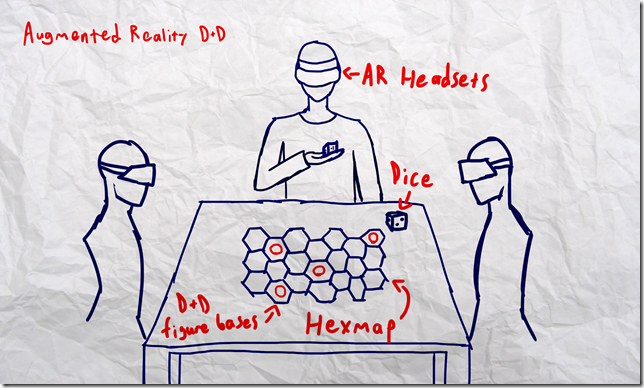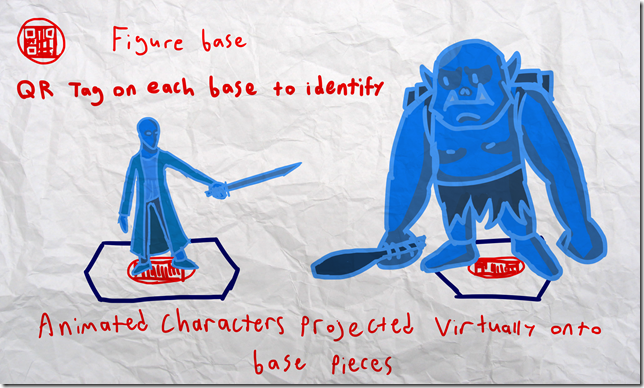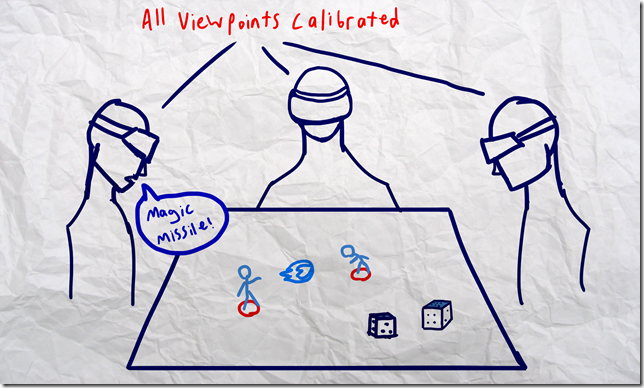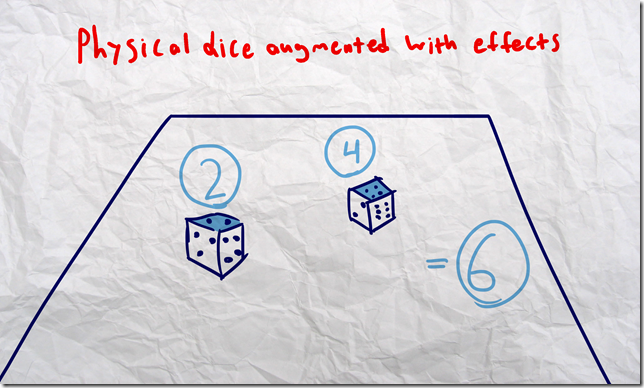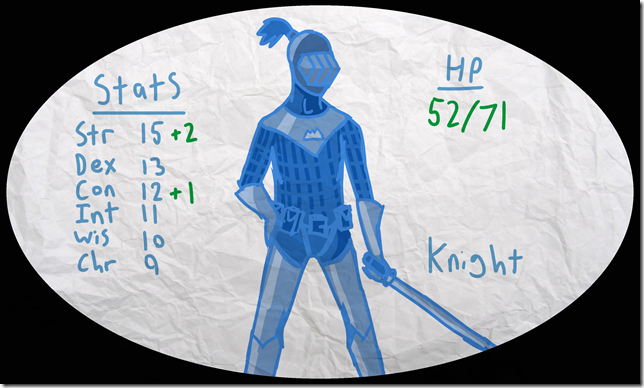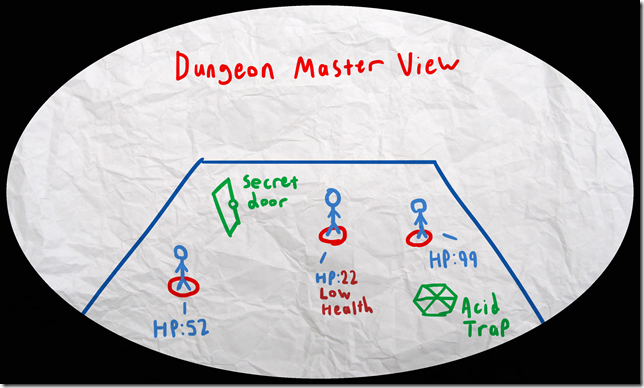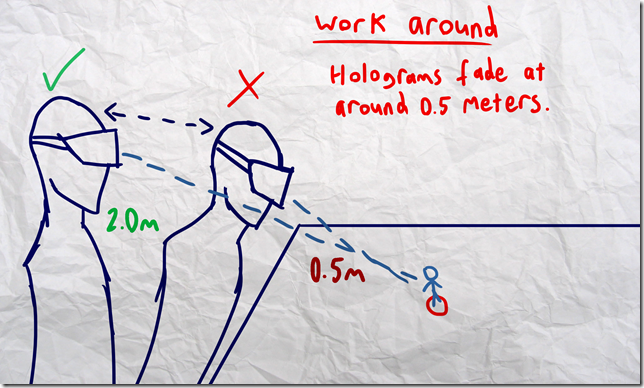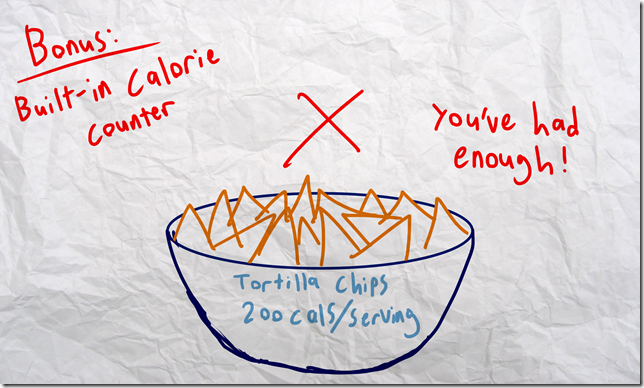These experiences sketches are an initial concept exploration for a pen and paper role playing game like Dungeons & Dragons augmented by mixed reality devices. The first inklings for this were worked out on the HoloLens forums and I want to thank everyone who was kind enough to offer their creative suggestions there.
I’ve always felt that the very game mechanics that make D&D playable are also one of the major barriers to getting a game going. The D&D mechanics were eventually translated into a variety of video games that made progressing through an adventure much easier. Instead of spending half an hour or more working out all the math for a battle, a computer can do it in a fraction of the time and also throw in nice particle effects to boot.
What gets lost in the process is the story telling element as well as the social aspect of playing. So how to we reintroduce the dungeon master and socialization elements of role playing without having to deal with all the bookkeeping?
With augmented reality, we can do much of the math and bookkeeping in the background, allowing players to spend more time talking to each other, making bad puns and getting into their characters. Instead of physical playing pieces, I think we could use flat player bases instead imprinted with QR codes that identify the characters. 3D animated models can be virtually projected onto the bases. Players can then move their bases on the underlying (virtual) hex maps and the holograms will continue to be oriented on their bases correctly.
All viewpoints are calibrated for the different players so everyone seems the same things happening – just from different POVs. The experience can also be enhanced with voice commands so when your magic user says “magic missile” everyone gets to see appropriate particle effects on the game table shooting from the magic user character’s hands at a target.
I feel that the dice should be physical objects. The feel of the various dice and the sound of the dice are an essential component of pen and paper role playing. Instead, I want to use computer vision to calculate the outcomes, present digital visualizations of successful and unsuccessful rolls over the physical dice, and then perform automatic calculations in the background based on the outcome.
The player character’s stats and relevant info should over over him on the game table. As rolls are made, the health points and stats should update automatically.
While some of the holograms on the table are shared between all players, some are only for the dungeon master. As players move from area to area, opening them up through a visual fog of war, the dungeon master will be able to see secret content like the location of traps and the stats for NPCs. It may also be cool to enable remote DMs who appear virtually to host a game. The thought here is that a good DM is hard to find and in high demand. It would be interesting to use AR technology to invite celebrity DMs or paid DMs to help get a regular game going.
When I started planning out how a holographic D&D game would work, there was still some confusion over the visible range of holograms with HoloLens. I was concerned that digital D&D pieces would fade or blur at close ranges – but this turns out not to be true. The main concern seems to be that looking at a hologram less than a meter away for extended periods of time will trigger vergence-accomodation mismatch for some people. In a typical D&D game, however, this shouldn’t be a problem since players can lean forward to move their pieces and then recline again to talk through the game.
AR can also be used to help with calorie control for that other important aspect of D&D – snack foods and sodas.
Please add your suggestions, criticisms and observations in the comments section. The next step for me is creating some prototypes in Unity of gameplay. I’ll post these as they become ready.
And just in case it’s been a long time and you don’t remember what’s so fun about role playing games, here’s an episode of the web series Table Top with Will Wheaton, Chris Hardwick and Sam Witwer playing the Dragon Age role playing game.
